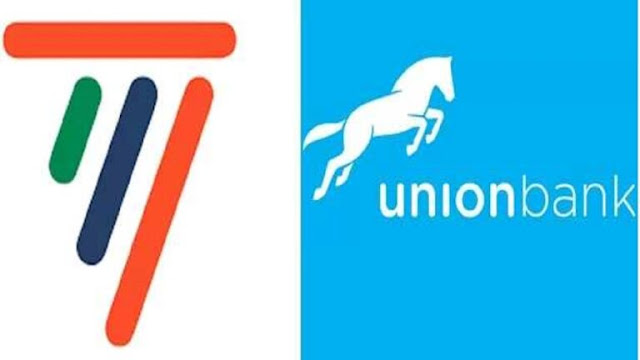In a landmark development for Nigeria’s financial services industry, Union Bank of Nigeria Plc, one of the country’s oldest and most established financial institutions, has successfully completed its merger with Titan Trust Bank Limited. The merger, finalized on September 1, 2025, following approval from the Central Bank of Nigeria (CBN), marks the culmination of a process that began with a Share Sale Agreement in 2021. Under the terms of the merger, Union Bank has fully absorbed Titan Trust Bank’s operations and assets, with the combined entity continuing to operate under the Union Bank brand. Titan Trust Bank, established in 2018, ceases to exist as a separate entity, and all its branches, operations, and digital platforms have been rebranded under Union Bank.
This merger, occurring ahead of the CBN’s March 31, 2026, recapitalization deadline, positions Union Bank as a stronger force in Nigeria’s financial services sector. With an expanded network of over 293 service centers and 937 ATMs nationwide, supported by enhanced digital infrastructure, the bank is poised to deliver greater value to retail, small and medium-sized enterprise (SME), and corporate customers. This article explores the details of the merger, its strategic significance, the broader context of Nigeria’s banking sector, and the challenges and opportunities for sustaining this momentum in a dynamic economic landscape.
Background: The Genesis of the Merger
The merger between Union Bank and Titan Trust Bank traces its origins to a Share Sale Agreement signed in 2021, when Titan Trust Bank, a relatively new player in Nigeria’s banking sector, acquired an 89.4% stake in Union Bank, one of Nigeria’s oldest financial institutions, founded in 1917. The acquisition, which triggered a mandatory offer for an additional 6.59% stake, was a bold move by Titan Trust, a bank established on December 12, 2018, and licensed as a national commercial bank on April 26, 2019. The deal, valued at a significant premium, aimed to leverage Union Bank’s century-long heritage and extensive network to accelerate Titan Trust’s growth ambitions.
However, the transaction faced scrutiny in 2023 when a leaked CBN report alleged governance lapses and raised questions about the involvement of associates of former CBN Governor Godwin Emefiele in Titan Trust’s creation and acquisition of Union Bank. The controversy led to the dissolution of the boards of both banks in January 2024, with the CBN appointing new leadership, including Yetunde Oni as Union Bank’s Managing Director and CEO. Despite these challenges, the merger process continued, culminating in the CBN’s final approval in August 2025, allowing the integration to be completed.
The merger aligns with the CBN’s broader recapitalization directive, announced in March 2024, which mandates banks to meet new minimum capital requirements: ₦500 billion for international banks, ₦200 billion for national banks like Union Bank, and lower thresholds for regional and non-interest banks. The directive aims to strengthen the banking sector’s resilience, enhance lending capacity, and support Nigeria’s economic diversification goals. The successful merger positions Union Bank to meet the ₦200 billion capital requirement for national banks, avoiding potential license downgrades or forced consolidations.
Details of the Merger
The merger agreement stipulates that Union Bank has fully absorbed Titan Trust Bank’s operations, including its branches, assets, liabilities, and customer accounts. As a result, Titan Trust Bank no longer exists as a separate entity, and all its 40 branches have been rebranded under the Union Bank logo. The combined institution now operates 293 service centers and 937 ATMs nationwide, significantly expanding Union Bank’s physical and digital footprint. Customers of both banks have been assured that account details remain unchanged, and services will continue seamlessly, with an emphasis on enhanced digital solutions.
Union Bank’s Chief Brand and Marketing Officer, Mrs. Olufunmilayo Aluko, described the merger as a “transformative milestone” that blends Union Bank’s 108-year legacy of stability with Titan Trust’s dynamism and innovation. “This merger positions Union Bank as an even stronger force within Nigeria’s financial services sector,” she stated, highlighting the bank’s expanded capacity to serve retail, SME, and corporate segments.
The bank’s CEO, Yetunde Oni, echoed this sentiment, calling the merger “a pivotal moment in Union Bank’s 108-year journey.” She emphasized that the integration creates a platform for sustainable growth and financial inclusion, combining stability with innovation to meet the evolving needs of Nigerians. “We are better positioned to be their most trusted financial partner,” Oni added.
Chairman of the Board, Mr. Bayo Adeleke, described the merger as ushering in “a new era of growth, collaboration, and shared prosperity.” He underscored the bank’s commitment to creating lasting value for customers, shareholders, and communities while advancing Nigeria’s financial inclusion agenda.
The merger’s completion was communicated to customers through an email titled “This Union is Evolving,” which reassured them of continuity in services and highlighted the bank’s strengthened position. Social media handles previously associated with Titan Trust Bank have also been updated to reflect the Union Bank brand, marking the formal end of Titan Trust’s independent operations.
Strategic Significance of the Merger
The merger holds significant strategic importance for Union Bank, the Nigerian banking sector, and the broader economy. Below are the key implications:
Strengthened Market Position: The consolidation enhances Union Bank’s market position, positioning it among Nigeria’s top-tier banks by assets and reach. With over 293 service centers and 937 ATMs, Union Bank can compete more effectively with tier-1 giants like Access Bank, Zenith Bank, and GTBank. The merger also aligns with the CBN’s recapitalization goals, ensuring compliance with the ₦200 billion capital requirement for national banks.
Operational Synergies: By absorbing Titan Trust’s operations, Union Bank can leverage economies of scale, streamline processes, and reduce redundancies. The integration of Titan Trust’s digital platforms and fintech partnerships enhances Union Bank’s digital banking capabilities, catering to a growing demand for tech-driven financial services.
Enhanced Lending Capacity: The merger bolsters Union Bank’s capital base, enabling it to expand lending to critical sectors like agriculture, infrastructure, and SMEs. This aligns with Nigeria’s economic diversification goals, as increased credit availability can stimulate growth in non-oil sectors.
Financial Inclusion: The merger supports Nigeria’s financial inclusion agenda by expanding access to banking services, particularly in underserved regions. Union Bank’s strengthened digital infrastructure, including mobile apps and online banking platforms, facilitates broader reach to retail and SME customers.
Response to Recapitalization Pressures: The merger comes at a critical time, as Nigerian banks face intense pressure to meet the CBN’s March 2026 recapitalization deadline. By consolidating with Titan Trust, Union Bank has proactively addressed this requirement, avoiding the fate of smaller banks that may face license downgrades or forced mergers.
Economic Context: Nigeria’s Banking Sector and Recapitalization Drive
The merger occurs against the backdrop of a transformative period in Nigeria’s banking sector, driven by the CBN’s recapitalization directive. The policy aims to address vulnerabilities exposed by naira depreciation, high inflation (exceeding 30% in 2024), and exposure to high-risk sectors like oil and gas. The naira’s value has eroded significantly over the past decade, reducing banks’ capital bases in dollar terms and limiting their ability to absorb losses. The CBN’s directive seeks to create a more resilient banking system capable of supporting Nigeria’s economic growth ambitions, including integration into the African Continental Free Trade Area (AfCFTA).
As of August 2025, at least ten banks, including Access Holdings, Zenith Bank, Stanbic IBTC, Wema Bank, GTBank, and now Union Bank, have met or exceeded their capital requirements, raising approximately ₦1.7 trillion in 2024 and ₦800 billion in the first seven months of 2025. However, smaller banks, such as Standard Chartered Bank, Nova Bank, and Optimus Bank, face funding gaps, with some exploring mergers to comply with the CBN’s deadline.
The banking sector’s performance is a paradox. In 2024, five of Nigeria’s top ten banks reported a combined pre-tax profit of ₦4.6 trillion, a 70% increase from the previous year, driven by interest rate spreads, government securities, and revaluation gains. Yet, many banks struggle to meet capital requirements, raising questions about the credibility of financial reporting. The CBN’s directive to suspend dividend payments and bonuses to preserve capital has sparked concerns about investor confidence, highlighting the need for stricter regulatory oversight.
Nigeria’s broader economic environment adds complexity. High inflation, currency volatility, and insecurity in agricultural regions have constrained consumer spending and business investment. However, reforms like the naira’s floatation in 2023 and increased diaspora remittances (reaching $600 million monthly in 2025) have improved liquidity and investor sentiment. The merger positions Union Bank to capitalize on these opportunities, leveraging its strengthened capital base to support economic recovery.
Challenges Facing the Merged Entity
While the merger is a significant achievement, Union Bank faces several challenges in sustaining its momentum:
Integration Risks: Merging two institutions with different cultures, systems, and customer bases poses operational challenges. Ensuring a seamless integration of Titan Trust’s branches, staff, and digital platforms requires careful planning to avoid disruptions.
Regulatory Scrutiny: The controversy surrounding Titan Trust’s acquisition of Union Bank in 2021, including allegations of governance lapses, underscores the need for robust compliance and transparency. Union Bank must strengthen its governance framework to rebuild trust with regulators and customers.
Macroeconomic Headwinds: High inflation, rising interest rates (27.5% in 2025), and naira volatility could constrain lending and erode consumer purchasing power. Union Bank must navigate these challenges to maintain profitability and growth.
Competition: Nigeria’s banking sector is highly competitive, with tier-1 banks dominating market share. Union Bank must differentiate itself through innovation, customer service, and targeted lending to SMEs and underserved sectors.
Customer Trust: Recent customer complaints about refunds and service quality, coupled with allegations of money laundering, highlight the need for Union Bank to prioritize consumer protection and transparency.
Opportunities for Growth
The merger presents significant opportunities for Union Bank to strengthen its position and contribute to Nigeria’s economic development:
Digital Transformation: The integration of Titan Trust’s digital platforms enhances Union Bank’s ability to offer tech-driven services, such as mobile banking and fintech partnerships. This aligns with Nigeria’s growing digital economy and the increasing adoption of cashless transactions.
SME and Agricultural Lending: With an expanded capital base, Union Bank can increase lending to SMEs and agricultural businesses, supporting Nigeria’s diversification efforts. Programs like the CBN’s Anchor Borrowers’ Programme could be leveraged to drive impact in these sectors.
Regional Expansion: The merger strengthens Union Bank’s position to explore opportunities within the AfCFTA, potentially expanding its services to other African markets through strategic partnerships.
Sustainable Finance: Union Bank can capitalize on the growing demand for ESG-compliant investments by offering green bonds and sustainable financing solutions, aligning with global trends.
Financial Inclusion: The bank’s expanded network and digital infrastructure can enhance access to banking services in underserved regions, supporting Nigeria’s goal of reducing the unbanked population.
Policy Recommendations
To maximize the benefits of the merger and strengthen Nigeria’s banking sector, policymakers and Union Bank should consider the following:
Strengthen Governance and Transparency: The CBN should enforce stricter financial reporting standards and independent audits to address credibility concerns. Union Bank must prioritize robust governance to rebuild trust post-merger.
Support Digital Infrastructure: Investments in internet connectivity and digital literacy can enhance the reach of Union Bank’s digital platforms, particularly in rural areas.
Incentivize Sectoral Lending: The CBN could offer tax incentives or credit guarantees to encourage banks to lend to priority sectors like agriculture, manufacturing, and technology.
Address Macroeconomic Challenges: Coordinated efforts to stabilize the naira, reduce inflation, and improve security are critical to creating a conducive environment for banking sector growth.
Enhance Consumer Protection: The CBN and Union Bank should strengthen consumer protection policies to prevent arbitrary charges and ensure prompt resolution of customer complaints.
Broader Implications for Nigeria’s Banking Sector
The Union Bank-Titan Trust merger is part of a broader consolidation trend in Nigeria’s banking sector, driven by the CBN’s recapitalization directive. As the March 2026 deadline approaches, more banks are likely to pursue mergers and acquisitions to meet capital requirements. Financial analyst Osas Igho predicts that at least two more banks are in merger talks, signaling further consolidation. This trend could reduce the number of banks but enhance the sector’s overall resilience and competitiveness.
The merger also highlights the importance of strategic partnerships in navigating regulatory and economic challenges. By absorbing Titan Trust, Union Bank has not only met the CBN’s capital threshold but also positioned itself to capture market share in a competitive landscape. Other banks, particularly smaller tier-3 institutions, may follow suit, leveraging mergers to scale operations and comply with regulatory requirements.
Looking Ahead: A Stronger Union Bank
The successful merger of Union Bank and Titan Trust Bank marks a pivotal moment in Nigeria’s banking sector. By combining Union Bank’s legacy with Titan Trust’s innovation, the merged entity is well-positioned to drive financial inclusion, support economic diversification, and compete in a dynamic market. The expanded network, enhanced digital infrastructure, and strengthened capital base provide a solid foundation for growth.
However, sustaining this momentum requires addressing integration risks, regulatory scrutiny, and macroeconomic challenges. Union Bank must prioritize customer trust, operational efficiency, and targeted lending to maximize the merger’s benefits. As Nigeria navigates a complex economic landscape, the bank’s ability to deliver value to customers, shareholders, and communities will be critical to its success.
In conclusion, the Union Bank-Titan Trust merger is a testament to the resilience and adaptability of Nigeria’s banking sector. By leveraging strategic consolidation, Union Bank has strengthened its position to support Nigeria’s economic growth and financial inclusion goals. As the CBN’s recapitalization deadline looms, the merger serves as a blueprint for other banks, highlighting the power of collaboration and innovation in building a stronger financial future for Nigeria.






